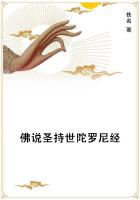MAT. Yes, faith, sir, we were at your lodging to seek you too.
PROS. Oh, I came not there to-night.
BOB. Your brother delivered us as much.
PROS. Who, Giuliano?
BOB. Giuliano. Signior Prospero, I know not in what kind you value me, but let me tell you this: as sure as God, I do hold it so much out of mine honour and reputation, if I should but cast the least regard upon such a dunghill of flesh; I protest to you (as I have a soul to be saved) I ne'er saw any gentlemanlike part in him: an there were no more men living upon the face of the earth, I should not fancy him, by Phoebus.
MAT. Troth, nor I, he is of a rustical cut, I know not how: he doth not carry himself like a gentleman.
PROS. Oh, Signior Matheo, that's a grace peculiar but to a few; "quos oequus amavit Jupiter".
MAT. I understand you, sir.
[ENTER LOR. JU. AND STEP.
PROS. No question you do, sir: Lorenzo! now on my soul, welcome; how dost thou, sweet rascal? my Genius! 'Sblood, I shall love Apollo and the mad Thespian girls the better while I live for this; my dear villain, now Isee there's some spirit in thee: Sirrah, these be they two I writ to thee of, nay, what a drowsy humour is this now? why dost thou not speak?
LOR. JU. Oh, you are a fine gallant, you sent me a rare letter.
PROS. Why, was't not rare?
LOR. JU. Yes, I'll be sworn I was ne'er guilty of reading the like, match it in all Pliny's familiar Epistles, and I'll have my judgment burn'd in the ear for a rogue, make much of thy vein, for it is inimitable. But Imarle what camel it was, that had the carriage of it? for doubtless he was no ordinary beast that brought it.
PROS. Why?
LOR. JU. Indeed, the best use we can turn it to, is to make a jest on't now: but I'll assure you, my father had the proving of your copy some hour before I saw it.
PROS. What a dull slave was this! But, sirrah, what said he to it, i'faith?
LOR. JU. Nay, I know not what he said. But I have a shrewd guess what he thought.
PRO. What? what?
LOR. JU. Marry, that thou are a damn'd dissolute villain, And I some grain or two better, in keeping thee company.
PROS. Tut, that thought is like the moon in the last quarter, 'twill change shortly: but, sirrah, I pray thee be acquainted with my two Zanies here, thou wilt take exceeding pleasure in them if thou bear'st them once, but what strange piece of silence is this? the sign of the dumb man?
LOR. JU. Oh, sir, a kinsman of mine, one that may make our music the fuller, an he please he hath his humour, sir.
PROS. Oh, what is't? what is't?
LOR. JU. Nay, I'll neither do thy judgment nor his folly that wrong, as to prepare thy apprehension: I'll leave him to the mercy of the time, if you can take him: so.
PROS. Well, Signior Bobadilla, Signior Matheo: I pray you know this gentleman here, he is a friend of mine, and one that will well deserve your affection, I know not your name, Signior, but I shall be glad of any good occasion to be more familiar with you.
STEP. My name is Signior Stephano, sir, I am this gentleman's cousin, sir, his father is mine uncle; sir, I am somewhat melancholy, but you shall command me, sir, in whatsoever is incident to a gentleman.
BOB. Signior, I must tell you this, I am no general man, embrace it as a most high favour, for (by the host of Egypt) but that I conceive you to be a gentleman of some parts, I love few words: you have wit: imagine.
STEP. Ay, truly, sir, I am mightily given to melancholy.
MAT. O Lord, sir, it's your only best humour, sir, your true melancholy breeds your perfect fine wit, sir: I am melancholy myself divers times, sir, and then do I no more but take your pen and paper presently, and write you your half score or your dozen of sonnets at a sitting.
LOR. JU. Mass, then he utters them by the gross.
STEP. Truly, sir, and I love such things out of measure.
LOR. JU. I'faith, as well as in measure.
MAT. Why, I pray you, Signior, make use of my study, it's at your service.
STEP. I thank you, sir, I shall be bold, I warrant you, have you a close stool there?
MAT. Faith, sir, I have some papers there, toys of mine own doing at idle hours, that you'll say there's some sparks of wit in them, when you shall see them.
PROS. Would they were kindled once, and a good fire made, I might see self-love burn'd for her heresy.
STEP. Cousin, is it well? am I melancholy enough?
LOR. JU. Oh, ay, excellent.
PROS. Signior Bobadilla, why muse you so?
LOR. JU. He is melancholy too.
BOB. Faith, sir, I was thinking of a most honourable piece of service was perform'd to-morrow, being St. Mark's day, shall be some ten years.
LOR. JU. In what place was that service, I pray you, sir?
BOB. Why, at the beleaguering of Ghibelletto, where, in less than two hours, seven hundred resolute gentlemen, as any were in Europe, lost their lives upon the breach: I'll tell you, gentlemen, it was the first, but the best leaguer that ever I beheld with these eyes, except the taking in of Tortosa last year by the Genoways, but that (of all other) was the most fatal and dangerous exploit that ever I was ranged in, since I first bore arms before the face of the enemy, as I am a gentleman and a soldier.














